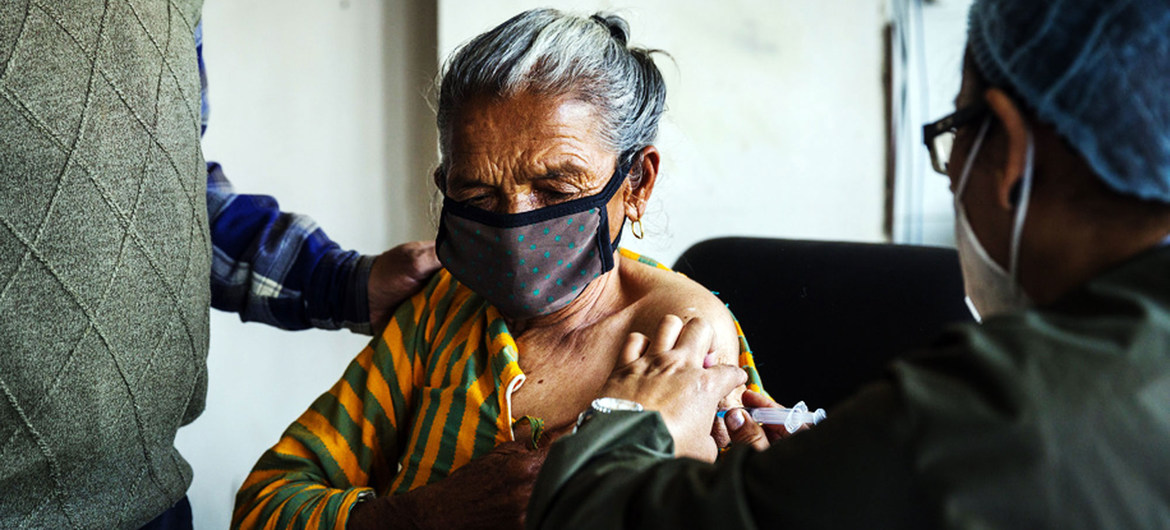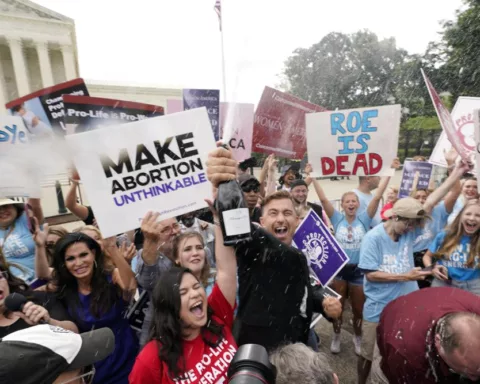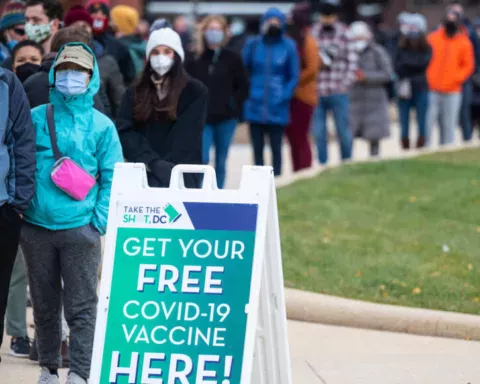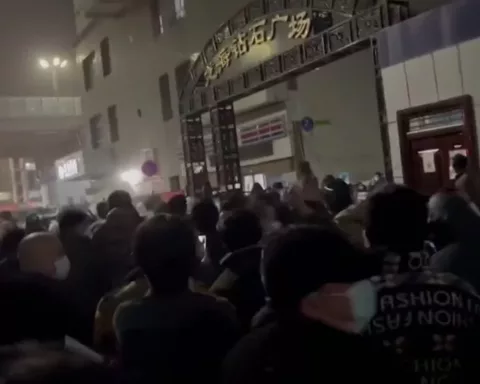There are many social, geographic, political, economic, and environmental factors that create challenges to vaccination access and acceptance, and that often affect racial and ethnic minority groups. Some of these factors include:
- Education, income, and wealth gaps
- Job access and working conditions
- Racism and other forms of discrimination
- Gaps in healthcare access
- Transportation and neighborhood conditions
- Lack of trust as a result of past medical racism and experimentation
Because of these and other challenges, some Black or African American people and Hispanic or Latino people are less likely to be vaccinated against COVID-19 than people in other racial and ethnic minority groups and non-Hispanic White people.[1-3] You can view the most current race and ethnicity data on COVID-19 vaccination. In addition to being less likely to get a vaccine, Black or African American people and Hispanic or Latino people are more likely to get seriously ill and die from COVID-19 due to the factors listed above.[4-6] CDC uses the Social Vulnerability Index (SVI) to assess the potential negative effects on communities caused by external stresses on human health. You can view the most current health equity data on COVID-19.
Other racial and ethnic minority groups, including American Indian or Alaska Native people, have also been more severely affected by COVID-19 than non-Hispanic White people, due to the challenges listed above. However, vaccination rates among American Indian or Alaska Native people are the highest among racial and ethnic minority groups, [7] in part due to vaccination efforts from CDC and partners. You can find more information about CDC COVID-19 activities in Tribal communities, including vaccination efforts, and communication resources.
CDC Is Committed to Vaccine Equity for Racial and Ethnic Minority Groups
CDC is paving the way in vaccine equity efforts with national, state, tribal, territorial, local, and community partners to ensure that Black or African American people and Hispanic or Latino people have fair and just access to COVID-19 vaccination. To support vaccine equity, CDC continues to communicate with and listen to all communities affected by COVID-19. CDC is working to build trust, increase collaboration, and create tools and resources to respond to the concerns and feedback from all communities affected by COVID-19, especially those disproportionately impacted. These activities, along with messages supported by science, can help to increase COVID-19 vaccine acceptance and make it easier to get vaccinated.
Communication and Educational Resources
You can use the resources below to engage with communities that have been affected by COVID-19. Many of the resources available can be tailored for racial and ethnic minority communities to:
- Help build vaccine confidence
- Share clear and accurate information to educate about COVID-19
- Raise awareness about the benefits of vaccination and address common questions and concerns
- Adapt key messages to the language, tone, and format that will resonate with communities
- Understand community needs regarding COVID-19 vaccines
A Guide for Community Partners—Increasing COVID-19 Vaccine Uptake Among Racial and Ethnic Minority Communitiespdf icon: A resource for community organizations to engage in or support COVID-19 vaccination confidence and access in racial and ethnic minority communities. Explore strategies, interventions, and ready-made messages and materials. This document is also available in Spanishpdf icon.
COVID-19 Vaccination Toolkit for Health Departments and Other Public Health Partners and Community-Based Organizations Vaccine Toolkit: Include key messages and community engagement strategies that build trust and educate communities about COVID-19 vaccines.
Communication Toolkit for Migrants, Refugees, and Other Limited- English-Proficient Populations: Prevention and vaccination messaging for public health professionals, health care providers, and community organizations to reach communities that speak languages other than English.
Rapid Community Assessment Guide: Resources for state and local health departments to identify communities at risk for low COVID-19 vaccine uptake and understand community needs regarding COVID-19 vaccination.
COVID-19 Vaccination for Essential Workers: Racial and ethnic minority groups are disproportionately represented among essential work and industries. This page includes resources for employees and employers to help plan for and encourage COVID-19 vaccination to protect the workplace.
CDC has printable resources covering a wide range of topics related to COVID-19 vaccines that can be filtered by audience.
- Facts About COVID-19 Vaccines: General information about COVID-19 vaccines. Available in 27 languages.
- What to Expect after Getting a COVID-19 Vaccine: Information on what to expect after getting a COVID-19 vaccine. Available in 10 languages.
- COVID-19 Vaccine for Preteens and Teens: Resource for parents on COVID-19 vaccines for preteens and teens. Information on COVID-19 vaccine for children and teens is also available in Spanish.
- A Safe and Effective COVID-19 Vaccine is Now Available: Comic-book style graphic fotonovela that tells the story of a daycare worker’s decision to get vaccinated against COVID-19. Available in English, Spanish, and Haitian Creole.
CDC Partnerships and Funding
Health and vaccine equity are essential parts of CDC’s mission. CDC works with national, state, tribal, territorial, local, and community partners to promote COVID-19 vaccination among Black or African American people and Hispanic or Latino people. To support these partnerships, CDC has provided funding for organizations that reach racial and ethnic minority groups. This funding includes:
- $3 billion awarded to 64 jurisdictions to support local health departments and community-based organizations in launching new programs and initiatives to increase vaccine access, acceptance, and uptake in communities disproportionately impacted by COVID-19
- $2.25 billion awarded to health departmentspdf icon across the United States and its territories to work in collaboration with community partners to support efforts to address COVID-19 health disparities
To support other vaccine equity partnerships, CDC announced that $332 million will be awarded for community health worker services to support COVID-19 prevention and control by addressing disparities in access to COVID-19 related services, including vaccination.
Additional CDC efforts toward vaccine equity for racial and ethnic minority groups include funding for:
- 8 national organizations through CDC’s Partnering with National Organizations to Increase Vaccination Coverage Across Different Racial and Ethnic Adult Populations Currently Experiencing Disparitiesexternal icon, including: Asian and Pacific Islander American Health Forum, National Alliance for Hispanic Health, National Minority Quality Forum, National Urban League, Northwest Portland Area Indian Health Board, National Council of Negro Women, UnidosUS, Conference of National Black Churches
- 4 medical organizations serving racial and ethnic minority groups through CDC’s Partnering with Professional and Medical Associations to Increase Vaccination Coverage Across Different Racial and Ethnic Adult Populations Experiencing Disparitiesexternal icon, including: National Medical Association, National Hispanic Medical Association, Association of American Indian Physicians, National Council of Urban Indian Health
- 3 national foundations through CDC’s Partnering with National Organizations to Support Community-Based Organizations to Increase Vaccination Coverage Across Different Racial and Ethnic Adult Populations Currently Experiencing Disparitiesexternal icon, including: CDC Foundation, Community Catalyst, Urban Institute
- 34 national, state, tribal, and community organizations through CDC’s Racial and Ethnic Approaches to Community Health – REACHexternal icon, including: Alaska Native Tribal Health Consortium, Allegheny County, PA, American Heart Association, California Department of Public Health, Cicatelli Associates, Inc., City of Hartford, CT, City of Miami Gardens, FL, City of San Antonio Metropolitan Health District, TX, City of Worcester, MA, County of San Diego, Health and Human Services Agency, CA, Cuyahoga County Board of Health, Dekalb County Board of Health, GA, Eastern Michigan University, Health and Hospital Corporation of Marion County, Health Partners Initiative DBA Partnership for a Healthy Lincoln, NE, Houston County Board of Health, TX, Leadership Council for Healthy Communities, Lowell Community Health Center, Mississippi Public Health Institute, Montgomery Area Community Wellness Coalition, AL, Multnomah County Health Department, National Kidney Foundation of Michigan, Partners in Health, Penn State Health Milton S. Hershey Medical Center, Pima County Health Department, AZ, Presbyterian Healthcare Services, Public Health Advocates, Rosedale Assistance & Opportunities, Seattle-King County Public Health Department, WA, Southern Nevada Health District, The Institute for Family Health, University of Arkansas for Medical Sciences, YMCA of Coastal Georgia
Through these and other partnerships, CDC is working to remove barriers to COVID-19 vaccination access and promote vaccine equity. In line with this effort, CDC works with the Federal Retail Pharmacy Program to conduct community-based activities and use data to ensure COVID-19 vaccines are accessible in all communities.
Because of the availability of COVID-19 vaccines, the nation is closer than ever to ending the COVID-19 pandemic in the United States. Yet challenges remain in ensuring all people have fair and just access to COVID-19 vaccination. CDC is committed to ongoing work to promote vaccine equity.






